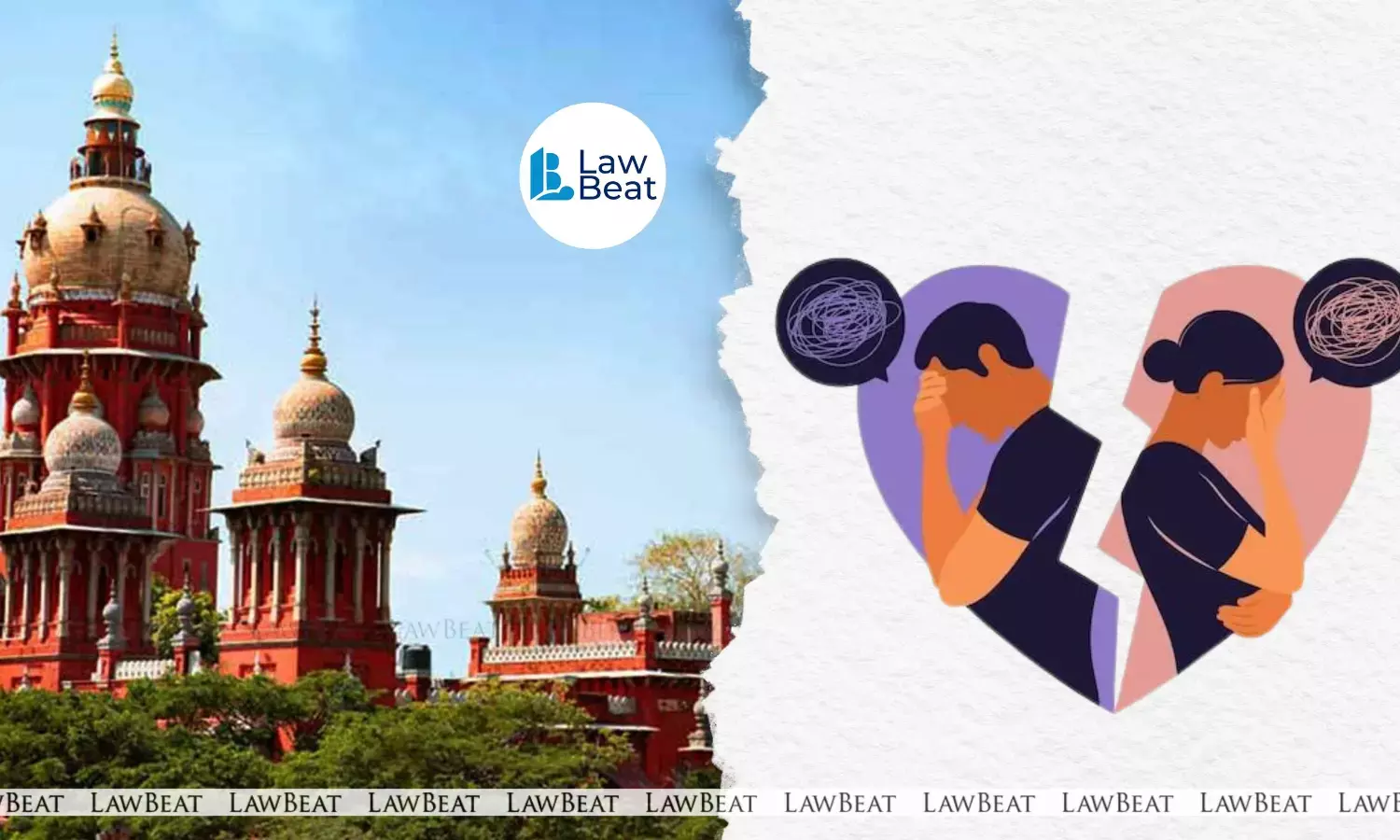'Forcing Delay Deepens Couple’s Agony': Madras HC Waives One-Year Wait in Mutual Divorce

The Madras HC waives one-year waiting period in a mutual divorce plea, calls delay agonising for the couple
The Madras High Court has held that compelling spouses, who have firmly decided to part ways, to sit through the mandatory one-year separation period under the Indian Divorce Act would serve no purpose and would only deepen their agony.
Court made this observation while allowing a civil revision petition filed by a couple against the order of a Family Court in Coimbatore, which had refused to entertain a mutual consent divorce petition on the ground that the statutory waiting period had not elapsed.
The case arose when a couple jointly filed a petition under Section 10A of the Indian Divorce Act on April 16, 2025, seeking dissolution of their marriage by mutual consent. They had declared January 1, 2025, as the date of their separation. The Family Court, however, returned the petition on April 21, 2025, stating that it was not maintainable since the parties had not completed the one-year statutory separation requirement.
The couple initially challenged this before the High Court, which directed them to re-present the papers. When the petition was filed again, the Family Court, through a docket order dated July 10, 2025, reiterated that the one-year waiting period under Section 10A could not be waived. Aggrieved, the petitioners approached the High Court once more.
Hearing the revision petition, Justice P.B. Balaji examined whether the Family Court was justified in insisting on the waiting period. The judge noted that both parties had submitted separate affidavits in the revision proceedings, affirming their voluntary decision to dissolve the marriage, asserting there was no fraud, coercion, or undue influence, and pointing out that they had no children whose interests needed protection.
“In such circumstances, compelling the petitioners to wait for the mandatory period to expire would only further increase their agony,” the court observed.
The High Court also took into account precedents from other courts. The petitioners had relied on a 2022 judgment of the Kerala High Court in Anup Disalva v. Union of India, where a division bench struck down the two-year separation requirement under Section 10A as arbitrary and unconstitutional, reading it down to one year in line with the Special Marriage Act, Hindu Marriage Act, and Parsi Marriage Act. The Kerala court had also emphasised that when both spouses mutually seek divorce, insisting on a mandatory waiting time was oppressive.
Justice Balaji noted that while the Kerala High Court’s decision was not binding on courts in Tamil Nadu, it carried persuasive value. Further, the Supreme Court had, in Amardeep Singh v. Harveen Kaur (2017) and Shilpa Sailesh v. Varun Sreenivasan (2023), recognised the discretion of courts to waive the six-month cooling-off period under Section 13B of the Hindu Marriage Act where circumstances justified early dissolution. On the same reasoning, the High Court held that family courts cannot mechanically apply the waiting period requirement when parties have conclusively resolved to separate.
The Family Court had relied on Amardeep Singh to hold that the one-year requirement was mandatory. The High Court, however, clarified that the ratio of the Supreme Court decisions made it clear that courts retain discretion to waive cooling-off requirements, and that such discretion equally extended to petitions under the Divorce Act.
Accordingly, Justice Balaji set aside the Family Court’s docket order of July 10, 2025, and directed it to number the mutual consent divorce petition without insisting on completion of the one-year separation period. The judge further directed that the petition not be returned or rejected on this ground in future.
Case Title: X vs Y
Order Date: September 4, 2025
Bench: Justice P.B. Balaji
